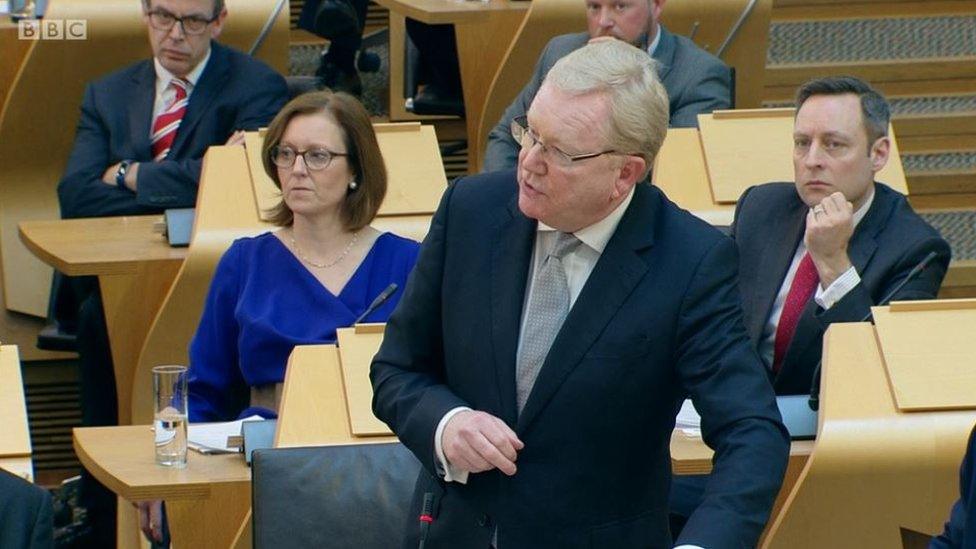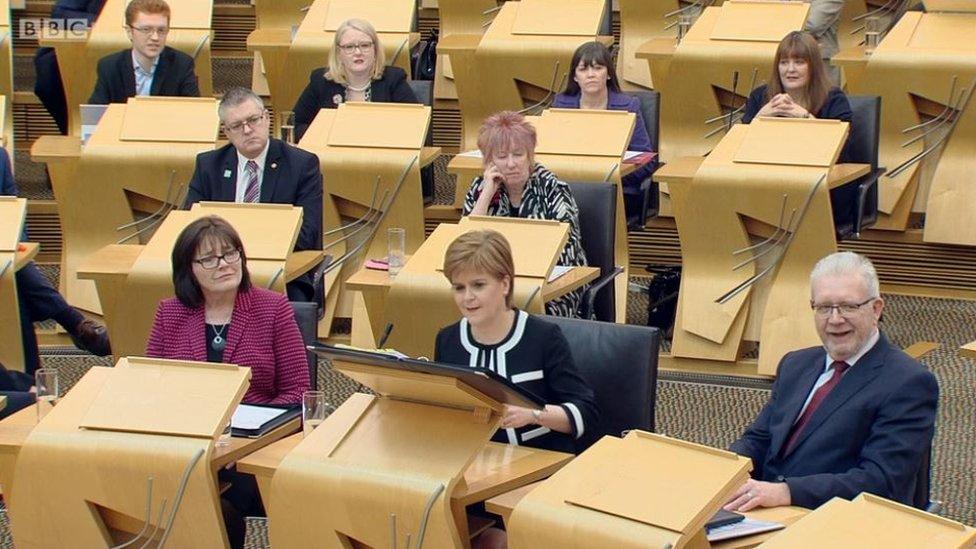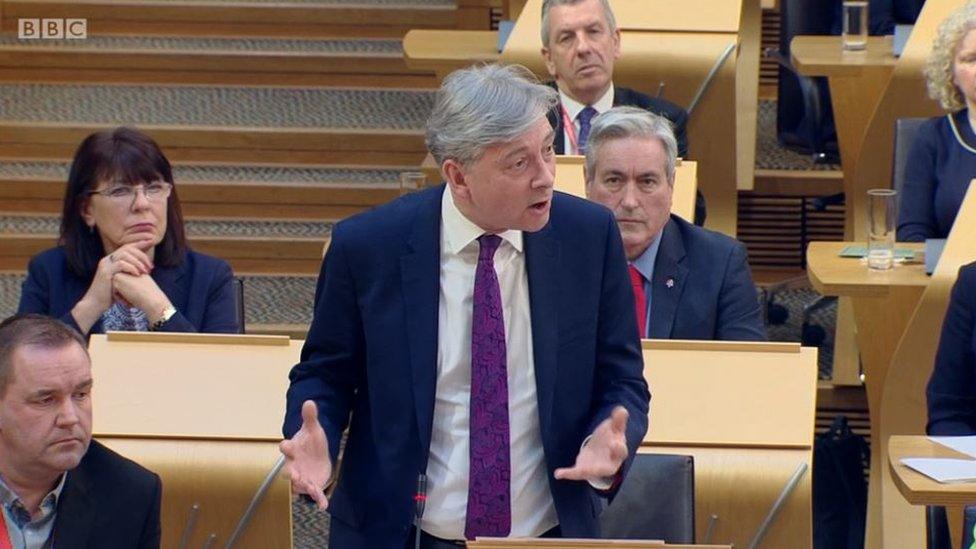The Ragman Rolls row
- Published

Jackson Carlaw chose to go on the offensive over Brexit
One could readily appreciate Jackson Carlaw's dilemma. The prime minister he supports is in trouble. Accused, variously, of incompetence, dither and the worst failure of political management in all our lifetimes.
Depends, I suppose, upon the length of that lifetime. Mine stretches back, just, to Suez - so from my perspective, that is pretty heavy stuff, as some used to say in the Sixties.
More significantly for Mr Carlaw, that particular attack came from Nicola Sturgeon, his interlocutor in Holyrood's weekly session of questions to the first minister.
So, as Jackson Carlaw arose, he knew he had to be ready with something substantial. Potentially cornered, he opted for attack.
In extremis, he turned to Twitter. It seems that Mike Russell, the Minister for Mitigating Brexit, had been spreading himself on social media.
Mr Russell had listed those Scots Tory MPs who voted for the PM's deal in Tuesday's crucial Commons vote (as distinct from Wednesday's crucial votes and today's and…).
The minister had then appended the following comment: #RagmanRoll. A reference to the lists of Scots nobles and gentry who were obliged to sign up and thus declare their fealty to Edward I of England.
Now, if we could but give them the chance, many of those on these thirteenth century Rolls would perhaps argue that theirs was purely a tactical move, designed to win time and regroup. At the time of writing, their signatures had the edge, as they saw it, on summary execution or English invasion.
But Jackson Carlaw viewed this historical allusion as an accusation of treachery against his Westminster colleagues. And so he summoned his strength to demand an apology from the FM. But somehow his heart wasn't really in it. Endless Brexit can do that: it can sap the spirit, weary the soul.

Mike Russell appeared amused to find himself the subject of Mr Carlaw's questioning
Ms Sturgeon counter-attacked. With Mike Russell bouncing vocally at her side, she argued that the Tory accusation was pitiful stuff, a distraction by comparison with the constitutional and political crisis now engulfing Scotland and the wider UK.
In the by-going, she took the opportunity to excoriate the Scottish Secretary David Mundell. He had chosen to abstain in last night's crucial vote on the issue of departing the EU without a deal.
This was, according to the FM, an inadequate protest in the light of the problems attendant upon no deal. It should be noted that Mr Mundell's decision has elsewhere been variously lauded as courageous or condemned as disloyal. He has, in short, attracted attention.
Mr Carlaw seemed, to this observer, somewhat subdued. Perhaps it was Brexit fatigue, perhaps it was the sense of sapping disorder in Tory ranks, perhaps it was a calculation that the situation requires calm discourse, rather than bombastic rhetoric.
Perhaps he felt he couldn't shout, now that the prime minister is reduced to a feeble croak. Either way, he made his points, steadily and methodically. Business organisations, he argued, were urging support for the PM's deal.

Richard Leonard tried to find an ally in the first minister this week
Incidentally, I was intrigued by the comment from the SNP MP Mhairi Black to the effect that Wednesday's crucial vote had resulted in "an absolute riddy" for the prime minister.
Intrigued because, in my youthful Dundonian days, the expression would have been "minter" or "beamer". Truly, European debate expands one's vocabulary.
However, back to Holyrood, and Labour's Richard Leonard. He sought, for a passing moment, to ally his perspective with that of the first minister.
She agreed, didn't she, that the PM's deal was mince and that no deal was a stinker? The first minister readily agreed but then invited Mr Leonard to back a prolonged Brexit extension - and a second referendum.
Mr Leonard repeated Labour's position - which was to seek transformation through a UK general election and/or a revised Brexit deal. A further referendum remained in the mix. Ms Sturgeon was unimpressed.
Let us finish where we began, in comparisons with thirteenth century Scotland. Who, among the contemporary dramatis personae, could fill the role of Toom Tabard? Polite answers only, please. In Middle Scots. Written on vellum.